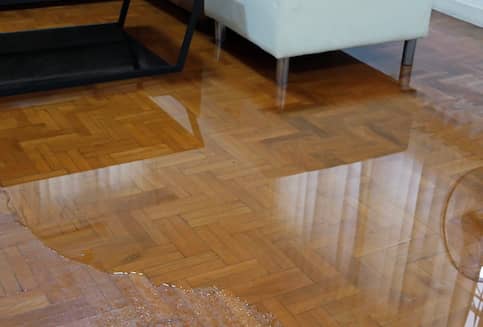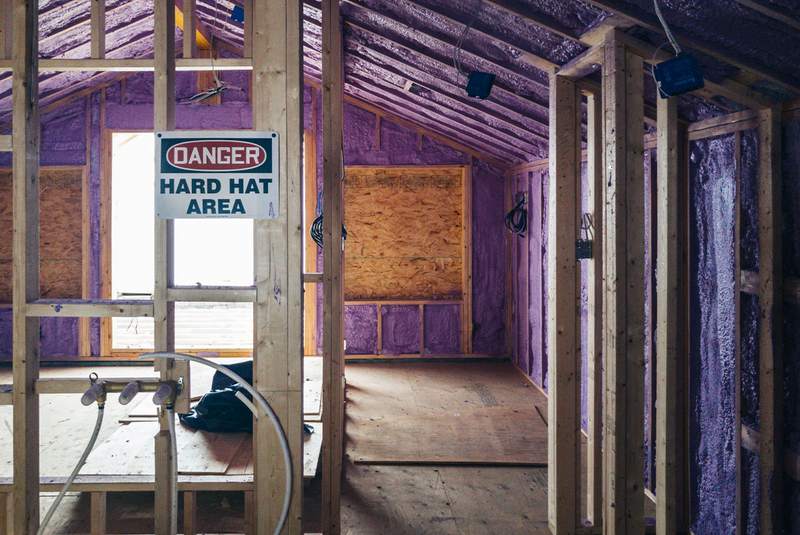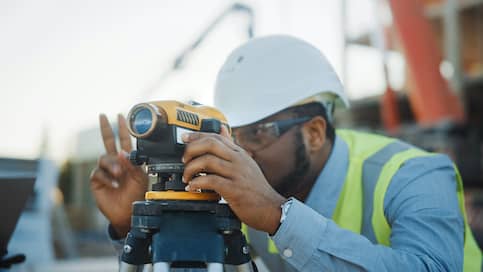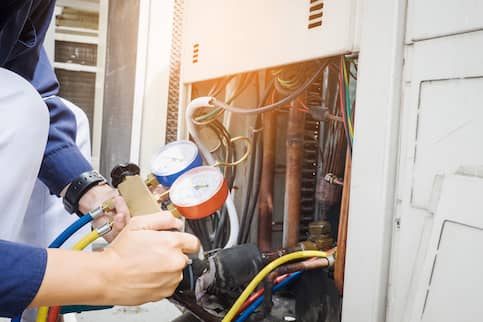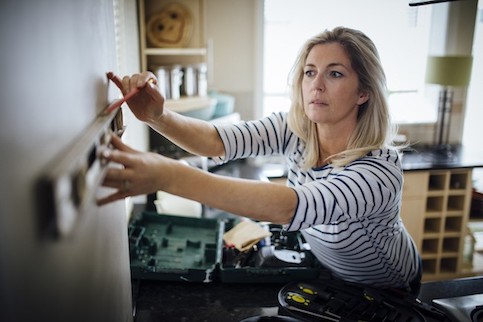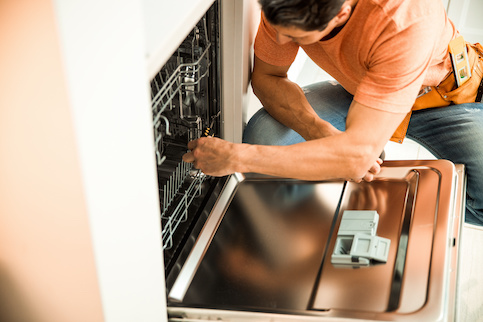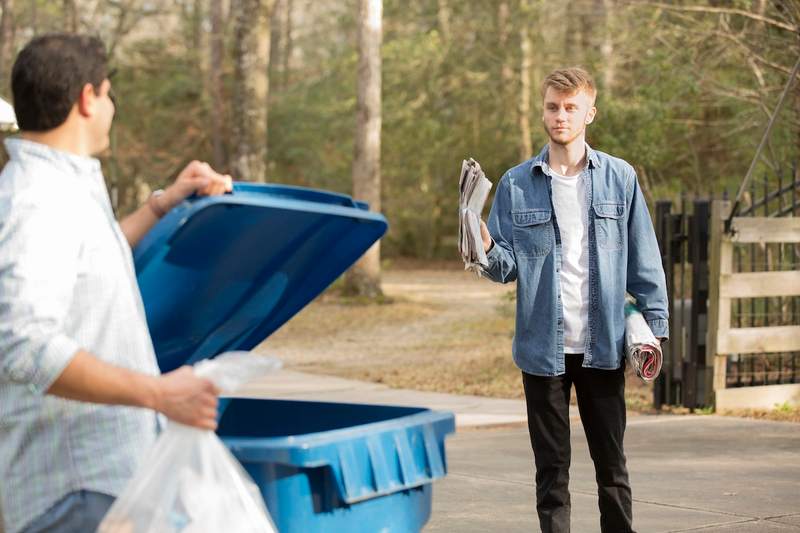Each year, homeowners have water damage and mold insurance claims costing the insurance industry $2.5 billion. The average claim costs almost $7,000 and causes homeowners a lot of stress and inconvenience.
Remediation of water damage (repairing it) can temporarily leave some homeowners without a home, which is why prevention is the best option. However, if you have damage from water, despite your best efforts, fast action is the next most important to avoid becoming an insurance statistic despite your best efforts.
Every year, water damage and mold insurance claims from homeowners cost the insurance industry $2.5 billion, with an average claim cost of nearly $7,000. Even when insurance companies cover damage from water claims, it is still a major inconvenience for homeowners.
Repairing damage from water, also known as remediation, can require some homeowners to move out of their homes temporarily. That’s why prevention is the best option, with fast action being a distant second among ways to avoid becoming an insurance statistic.
Causes Of Water Damage
Water damage can occur for many reasons, but some of the most common causes are here.
Weather
Heavy rain caused by thunderstorms and hurricanes can cause a sudden onset of flooding. It happens faster than homeowners can react most of the time, leaving them with water damage in places like basements and crawl spaces. Heavy rains can also cause damage to a roof.
Leaking Pipes
Leaking pipes may seem innocent enough. You have it fixed and move on with life, right?
Not always.
A leaking pipe can cause water damage to cabinets, walls, ceilings and even beneath a home’s concrete slab. If the water accumulates and sits long enough, it can also cause mold damage, requiring even more water damage repairs and renovations to make the home safe again.
Clogged Drains
You might not realize your drains are clogged right away until it’s too late. Clogged drains happen naturally from food, hair and other debris that goes down the drain but can’t get through the pipes. The debris can cause the water to back up and cause a pipe to leak.
Clogged drains may start with slow draining and lead to damage in the walls and ceilings of a house.
Clogged Gutters
If you don’t properly maintain your gutters, they could work against your property instead of for it. For example, if the rain can’t flow from the gutter to the downspout, it could run down your home’s siding, damaging the walls and ceilings.
Leaking Appliances
Appliances and utilities that run on water can leak without you realizing it. Hot water heaters, AC units, dishwashers and washing machines all have piping responsible for water drainage. If the pipes burst or get clogged, the leakage can cause immense damage to floors, ceilings and walls.
See What You Qualify For
Buy A Home
Discover mortgage options that fit your unique financial needs.

Refinance
Refinance your mortgage to have more money for what matters.
Tap Into Equity
Use your home’s equity and unlock cash to achieve your goals.
What To Know About Water Damage Home Repair and Restoration
Home repair water damage restoration is the key to putting your home back together and making it safe to live in. Understanding what the drying process and the restoration steps entail can help you best prepare for the process in your home.
Removing Standing Water
The most urgent task is to remove any standing water. Not only can it cause more damage, but the water can be contaminated, putting the health of you and your household members at risk. Mold growth is a considerable risk whenever standing water is involved, but water restoration specialists have special machinery and vacuums to remove the water.
Remove Damaged Flooring
Most water damage requires technicians to rip up flooring to look for water damage underneath it and determine what steps they should take next. In some cases, technicians can dry out the flooring with their equipment and leave it in place, but it’s best to prepare for the worst-case scenario.
Removal of Damaged Drywall and Cabinets
Water restoration technicians will also assess any damage to the drywall and cabinets. Any damage beyond what dehumidifiers can do in affected areas may need to be ripped out and replaced.
Testing for Mold
After any type of water damage, mold testing is crucial to ensure there aren’t hidden areas of mold growth that could cause health issues for you and your family. If mold is discovered in the house, more demolition and restoration must take place to ensure proper mold remediation.
Disinfecting the Area
If the water infiltrated the home, there could be a risk of contamination, especially if a sewage backup or mildew caused the water damage. Disinfection may be necessary by professionals with proper equipment and safety precautions to ensure everyone’s safety.
How To Prevent Leaks And Floods In Your Home
The best way to avoid water damage in your home is to prevent leaks and floods. Here are simple steps a homeowner can take to prevent serious water issues in a home.
Ensure That Indoor Plumbing And Appliances Are In Good Condition
Check Hoses, Faucets And Pipes Often
It may seem like a pain to constantly check your hoses, faucets and pipes, but this simple act could save you thousands of dollars. Weekly, make sure all hoses are secure, faucets aren’t leaking and pipes aren’t leaking. Then, if you find anything wrong, repair it right away.
Check Seals Around The House
Seals and caulking don’t last forever. Check the seals on all windows and doors. Walk through the basement or crawl space after a heavy rain to ensure there isn’t water seepage. If you notice water that didn’t come into your home before, you may need to reseal or recaulk the area.
Know How To Shut Off The Water To Your Home
Be familiar with the main water shutoff in your home. Should a pipe burst or other disaster happen, you can shut the water off quickly, minimizing the damage.
Shut Water Off When You Go On Vacation
Keep the main water valve off when you go on vacation. This ensures that no water will run through the pipes that could potentially burst while you’re gone.
Speaking of being away from home, never run the washing machine or dishwasher when you aren’t home. A homeowner should always be there when these appliances run just in case any immediate action is necessary.
Keep Your Basement Dry
Basements are often a culprit in many water damage situations. So keeping your basement free of seepage is important. Here’s how.
Reseal Your Basement
Your basement floors and walls may need resealing if you notice the appearance of water after heavy rain. Sealing doesn’t last forever, and the faster you reseal it, the less likely you are to have water damage.
Check For Standing Water
Walk the exterior of your home and look for standing water that could infiltrate the basement ceiling and walls. Then, find ways to drain the water away from the home to prevent this from occurring.
Prevent Sewer Backups With A Backwater Valve
A sewage backwater valve will ensure that sewage doesn’t enter your home. It will leave your home but not have a way back into it.
Prevent Flooding Outside From Entering Your Home
Direct Water Drainage Away From The Home
It’s important always to make sure all water drains away from home and can’t sit and eventually seep into the home, causing damage.
Clean Your Roof And Gutters
At least twice a year (after spring and fall), check your roof and gutters. Leaves and other debris can accumulate in the gutters and roof, making it harder for water to drain. Standing water can cause leaks inside the home, which can cause damage to the drywall, ceilings, and floors, not to mention mold growth and other problems.
Check Sprinklers And Irrigation Systems
Check your sprinkler and irrigation systems often, looking for pipe leaks or loose fittings that allow water to drip into your home or basement.
Water Damage FAQs
What should I do if my house floods?
If your house has sudden flooding, it’s essential to act fast, using these tips.
- Stop the leak at its source. Homeowners should quickly determine what’s causing the leak and stop it, usually by shutting off the main water valve.
- Turn off all electricity. You don’t want to take any more chances of damage. Until you know the primary source of the problem, shut all electricity to the home off.
- Try getting out as much water as you can while you wait for help. Any standing water you can remove safely, try to do as quickly as you can.
- Call your insurance company. Immediately contact your insurance company about the issue and follow their required steps.
- Call a restoration company. Many services have 24/7 numbers you can call. They can tell you what to do and/or come out right away to help with the issue if they offer after-hours services.
- Take photos of the damage. While you should move quickly to fix the issue, you’ll need photographic evidence for your insurance claims of the damage.
- Remove valuables from the area after taking pictures. Get as many valuables out of the area as possible and begin the drying process as soon as you can.
Does homeowners insurance cover water damage remediation?
The nature of the flood and the insurance coverage you choose will determine if your homeowners insurance covers water damage remediation. Most policies don’t cover floods from natural disasters, including hurricanes or earthquakes, but they might cover flooding from burst pipes, accidents and leaky roofs, even if it’s from rain.
Always read the fine print on your policy and ask about other forms of hazard insurance if you don’t think you have enough coverage for potential flood damage.
What else should I do to prevent flood damage?
Flood damage is sometimes irreparable for hard-to-replace possessions. Fortunately, there are some ways to protect these belongings, including:
- Store the items in a storage facility, fire/flood-proof safe or safety deposit box
- Store the items in waterproof bins off the floor and away from exterior walls
- Keep any personal items on elevated shelving, especially in the basement
The Bottom Line: Prevention Is The Best Solution For Home Water Damage
The best way to handle water damage is to prevent it in the first place. Taking the necessary steps to keep your home safe and frequently checking on your pipes, basement and crawl spaces may help reduce the risk of water damage. Preventing water damage is just one way to keep a healthy home.

Sam Hawrylack
Samantha Hawrylack is a full-time personal finance and real estate writer with five years of experience. She has a bachelor's degree in finance and an MBA from West Chester University. She writes for publications like BiggerPockets, Angi, Well Kept Wallet, Crediful, Clever Girl Finance, AllCards, InvestingAnswers and many more.
